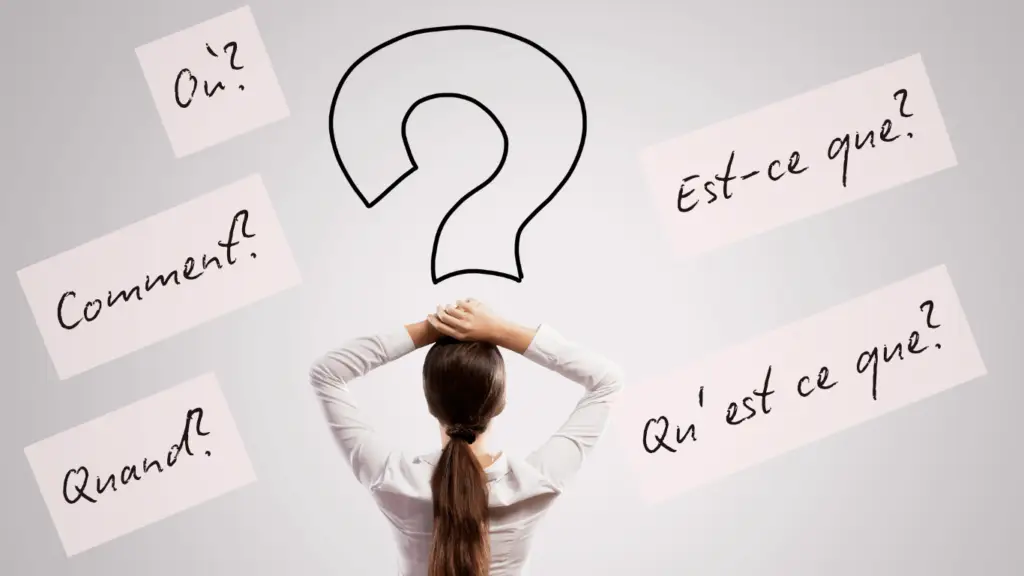“Je vais à Nice, en France, au marché… et aux urgences?”
French prepositions of place like à, en, au, and aux can be surprisingly tricky — even for advanced learners. If you’ve ever hesitated while saying you’re going to the beach in Nice or planning a trip to Saint-Tropez, you’re not alone.
If you’re moving to France or planning a long stay on the Côte d’Azur, getting these prepositions right will make your life easier — whether you’re booking a hotel in Cannes, heading to the market in Nice, or explaining your next stop to a taxi driver.
The good news? Once you understand the rules (and the many exceptions), you’ll feel more confident using à, en, au, and aux naturally in everyday situations. Let’s break it down.
Master French Prepositions of Place: à, en, au, and aux
French prepositions of place depend on the gender and number of the location. While that might sound straightforward, there are enough exceptions to confuse even the most diligent learner.
This guide will help you understand when to use:
- à – for cities and specific locations
- en – for feminine countries and regions
- au – for masculine countries
- aux – for plural countries and locations
1. À – Use It with Cities and Specific Locations

The preposition à is the most straightforward one — you’ll use it with cities and specific places within a city.
- Use à with:
- Cities and towns
- Specific locations (restaurants, hotels, beaches)
- Events
Examples:
- Je vais à Nice → I’m going to Nice.
- Elle habite à Cannes → She lives in Cannes.
- Il est à la plage → He’s at the beach.
- On se retrouve à la gare → We’ll meet at the train station.
👉 Even if the city name sounds masculine or feminine, you always use à with cities.
2. En – Use It with Feminine Countries and Continents

Most countries ending in -e are feminine — which means you’ll use en when talking about them.
- Use en with:
- Feminine countries
- Continents
- Means of transport
Examples:
- J’habite en France → I live in France.
- Elle voyage en Italie → She’s traveling to Italy.
- On part en Europe cet été → We’re going to Europe this summer.
- Je vais en train à Cannes → I’m going to Cannes by train.
👉 Masculine countries that start with a vowel also take en:
- Il est en Iran → He’s in Iran.
- Elle travaille en Afghanistan → She works in Afghanistan.
3. Au – Use It with Masculine Countries and Singular Locations

If the country or region is masculine, you’ll use au. Think of it as the masculine counterpart to en.
- Use au with:
- Masculine countries
- Specific masculine locations
Examples:
- Il part au Canada → He’s going to Canada.
- On va au marché de Nice → We’re going to the market in Nice.
- Elle est au cinéma → She’s at the cinema.
👉 Use au even if the country ends in -e if it’s considered masculine:
- Je vais au Mexique → I’m going to Mexico.
4. Aux – Use It with Plural Countries and Locations
If the country or location is plural, you’ll need aux.
- Use aux with:
- Plural countries
- Plural places
Examples:
- Je vais aux États-Unis → I’m going to the United States.
- Elle vit aux Pays-Bas → She lives in the Netherlands.
- Ils sont aux îles de Lérins → They’re on the Lérins Islands.
👉 Some countries are always plural in French:
- Les États-Unis → the United States
- Les Pays-Bas → the Netherlands
5. The (Inevitable) Exceptions
Ah, French… where there’s a rule, there’s an exception. Here are some of the most common ones that trip people up:
- Le Mexique → Masculine even though it ends in -e → Je vais au Mexique
- Le Cambodge, le Mozambique, le Zimbabwe → All masculine despite their -e ending → Je vais au Cambodge
- Iran, Irak, Afghanistan → Masculine but take en because they start with a vowel → Il est en Iran
Then there are places that just refuse to follow any pattern:
- Singapour → à Singapour
- Madagascar → à Madagascar
- Taïwan → à Taïwan
Sign Up for the Feel Good French Newsletter
6. Practical Phrases for Expats and Travelers to Practice the French Prepositions à, en, au and aux
| Category | Examples |
|---|---|
| 1. Moving and Daily Life | – Je vais à Nice pour signer le contrat de location. – Elle habite en France depuis sa retraite. – On prend un café au centre-ville de Cannes. – Il travaille aux États-Unis mais passe l’été en France. |
| 2. Social and Leisure | – On se retrouve à la plage de Saint-Tropez ce soir ? – Ils passent leurs vacances aux îles de Lérins chaque année. – On dîne au restaurant après le marché. – Elle fait du shopping à Nice tous les samedis. |
| 3. Healthcare and Administrative Tasks | – Il a eu un rendez-vous à l’hôpital de Cannes. – Elle doit faire une demande de visa au consulat. – On a été aux urgences à Saint-Tropez après une piqûre de méduse ! |
| 4. Transportation | – On part en train à Paris demain. – Ils voyagent en voiture à Saint-Tropez. – Elle est allée en avion au Canada. |
| 5. Traveling and Visiting | – Il passe un mois au Japon chaque année. – Ils sont allés en Espagne à Madrid pour une semaine. – On va à Taïwan pour une conférence. – Elle va à Madagascar pour le travail. |
7. Exercise – Complete the Dialogue with the right French preposition à, en, au and aux
Sophie : Tu pars en vacances cet été ?
Paul : Oui, je vais ____ Italie puis ____ Espagne.
Sophie : Ah super ! Et après ?
Paul : Ensuite, on va ____ États-Unis pour voir la famille.
Sophie : Tu vas rester longtemps ?
Paul : Oui, puis on va faire un tour ____ Mexique.
Sophie : Génial ! Tu comptes aller ____ Taïwan aussi ?
👉 Answers: en, en, aux, au, à
French Prepositions: Interactive Quiz on Wordwall
8. Final Tip to Use the French Prepositions Correctly
If you’re ever in doubt, remember this general pattern:
- Cities → à
- Feminine countries → en
- Masculine countries → au
- Plural countries → aux
👉 Want to sound more natural in French?
Mastering prepositions is key — but so is asking the right questions! Read my guide on French Question Words to avoid sounding awkward in French.
Déborah, Your French Teacher
Why “-ent” Is Silent in French Verbs (and Why That Matters)
If you’re an expat learning French, you’ve probably seen verbs ending in -ent and wondered…
How to Say “To Go” in French | Aller Verb Conjugation
The verb aller (to go) is one of the most essential and frequently used verbs…
French Sentences: Why You’re Getting Adjective Order Wrong (And How to Fix It)
Learning to place adjectives correctly in French sentences can be one of the most confusing…
Think You Know French Prepositions? À, En, Au, and Aux Might Surprise You!
“Je vais à Nice, en France, au marché… et aux urgences?” French prepositions of place…
How to Use French Question Words Correctly (Without Sounding Awkward!)
Asking questions in French can feel tricky, especially because there are several different ways to…
French Past Tense – Imparfait vs Passé Composé: No More Confusion
“Hier, j’ai vu un film au cinéma.” → A specific event, completed action → passé…






